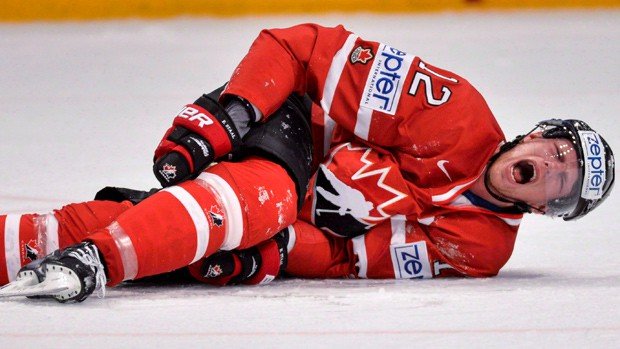NHL strength coach warns against kids playing hockey year-round
The story of Wayne Gretzky spending countless hours on a backyard skating rink built by his father is a familiar one. But when he was a kid, one of the best parts of the year was when the snow finally melted and he could put his equipment away and pick up a baseball bat or lacrosse stick.
“I was absolutely ecstatic to see the end of the hockey season,” Gretzky told the National Post in 2000.
“One of the worst things to happen to the game, in my opinion, has been year-round hockey and, in particular, summer hockey. All it does for kids, as far as I can tell, is keep them out of sports they should be doing in the warmer weather.”
Gretzky is not alone.
Brendan Shanahan took a break from hockey by spending the summer playing lacrosse. Hal Gill was a highly regarded high school quarterback. Daniel and Henrik Sedin excelled at soccer. And Jarome Iginla was the starting catcher on Canada’s national junior baseball team.
But multiple-sport athletes are becoming a thing of the past, as more and more young players are being pressured to play hockey year-round and even during the school day at sports academies.
“I just talked to a guy who said, ‘Wayne Gretzky’s dad used to throw his equipment in the attic at the end of spring and get it out at the end of September,’” said Robb Nelson, owner and managing director at PEAC School for Elite Athletes. “Try doing that today and see what the kid looks like in September. He might be athletic, because he’s running and swimming and doing everything else. But is he better at his sport? I doubt it.”
At PEAC, students spent one-and-a-half hours per day performing drills on the ice and another hour of off-ice hockey specific training. In addition, they receive three more hours per week of ice time. Because 99% of the students also play Triple-A hockey, Nelson estimates that they are putting in 25 hours per week in some form of hockey training.
It does not end there. Once the season is over, summer hockey begins and along with it, more private lessons and off-ice hockey-specific training.
As a result, hockey players have probably never been fitter than they are today. But what is it doing to their bodies?
“Training programs are kind of getting to be insane with the expectations on young athletes, the hours per week that they’re being asked to train and the trauma they’re putting their bodies through at such a young age,” said Dr. Douglas Stoddard, medical director at the Sports & Exercise Medicine Institute in Toronto. “We are seeing injuries at a younger age that we (normally) didn’t see until an older age.”
“I see a general decrease in athleticism,” said Matt Nichol, a former Toronto Maple Leafs strength and conditioning coach who now trains NHLers such as Tyler Seguin and Mike Cammalleri. “I think the best successful hockey players that I’ve worked with were also tremendous athletes. They were guys who could have played professionally in other sports.
"From a performance standpoint, the broader the base of their athleticism from a young age, the greater their skill acquisition will be at a later age.”
Nichol, who recently did some consulting work with the Russian Ice Hockey Federation, said European players have a history of playing multiple sports. The reason is two-fold: to avoid mentally burning out and to rest muscles that have become overworked.
“I’m not an idiot,” said Nichol. “If you want to be good at hockey, you have to practise hockey. But the old Russian sports school system, which Alex Mogilny was a product of, stuff like volleyball and basketball was mandatory because it worked on leg power and conditioning. They didn’t care about having fun or making kids well rounded, they just thought it made better hockey players.
“Skating is an unnatural motion. The human body is not designed to put skates on or smash into people. We are designed to run and jump and move. Doing that without having other activities to balance it out, you’re definitely going to see overuse injuries like hip labral tears and sports hernias.”
Still, Nichol understands that telling parents that letting their kids play squash will make him a better hockey player is a tough sell. Especially when sports school administrators, like Nelson, are telling those same parents, “Max Domi was here all summer doing private lessons and semi-private lessons.”
“It’s all peer pressure,” said Nichol.
“I think a lot of parents, in their hearts they know it doesn’t make a lot of sense, but they figure ‘if everyone else is doing it, am I putting my kid at a disadvantage by not playing him all year long?’”

